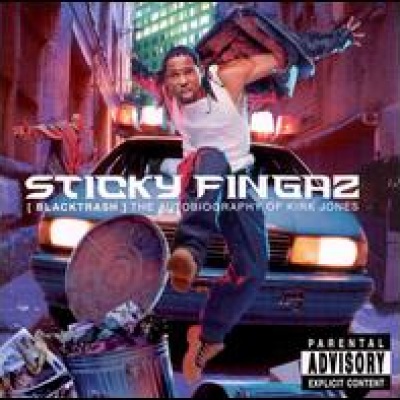
Black Trash: The Autobiography of Kirk Jones
by Matt ConawaySticky Fingaz' oft-delayed solo debut, Black Trash: The Autobiography of Kirk Jones, is a bold conceptual endeavor that loosely follows the same format Prince Paul implemented on his hip-hopera Prince Among Thieves. Scripted to fit the silver screen, Black Trash chronicles the trials and tribulations of Kirk Jones, a down-on-his-luck knucklehead who always manages to find trouble. Playing out like a lyrical collage, Black Trash is an emotional roller coaster that tackles the quintessential tale of good vs. evil. Though highly imaginative, like most Hollywood blockbusters, Black Trash fights bouts of long-windedness (this is particularly evident toward the LP's conclusion), yet there is still plenty to chew on in between. Displaying a lyrical diversity that his stint with Onyx rarely suggested, Sticky serves up a slew of profound moral messages on the thought-provoking "Why" and "Oh My God," where in a maniacal state Sticky questions God's existence. Yet, his lyrical transformation is best exemplified on "Money Talks" (featuring Raekwon), where Sticky speaks in third-person, as a dollar bill, and vividly depicts how the material possessions people strive to own eventually end up owning them. While the dramatic ebb and flow of Black Trash is the LP's saving grace, as the running dialogue (contributed by Omar Epps) and frequent skits ingeniously captures the many complex intricacies that make up Sticky/Jones' conflicting personas. However, it is hard to feel sympathetic for the character, as he is a man who, through the course of this LP, shows little regard for human life, kills his best friend, beats his wife, and deserts his child. Yet, similar to James Gandolfini's portrayal of Tony Soprano, Sticky convincingly brings Jones to life, and he is such an enigmatic character that you can't help but root for him, even though he doesn't deserve it.
